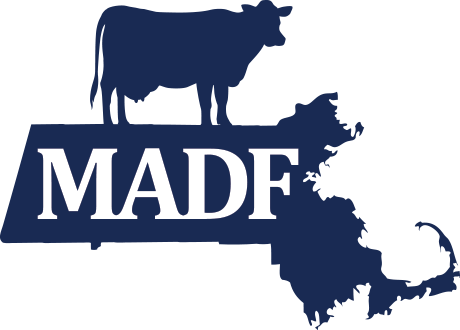HOUSE TUCKS FARM WORKER POLICIES INTO MINIMUM WAGE BILL
 By Andy Metzger
By Andy Metzger
STATE HOUSE NEWS SERVICE
STATE HOUSE, BOSTON, APRIL 1, 2014…..Many of the orchards and fields in Massachusetts are tended by workers from other countries through a federal program, and policymakers are looking to update the state’s own legal framework for farm work.
The House is set to take up a minimum wage bill Wednesday that changes old laws governing the agricultural industry. The effort comes after the release of a report by environmental and agricultural groups aimed at crafting land use policy and bond programs to support regional food production.
The minimum wage for farm workers in Massachusetts is technically $1.60 per hour, hardly more than the $1.20 per hour established by a 1967 bill. According to the attorney general’s office, the $7.25 federal minimum wage has precedence over the lower wage floor for farmers in state law, and people in the agricultural industry said most farms pay more than the state’s $8-per-hour minimum wage. The House bill would raise the minimum wage for farm workers to $8 per hour, and to $10.50 an hour for other workers.
“I think many of us in the farming community already employ people that make considerably more than the minimum wage,” said U.S. Department of Agriculture State Director Jay Healy, a former state representative who owns a tree farm. Healy said the labor picture is somewhat different for apple and vegetable farms that employ seasonal workers who are often in the country on migratory worker visas.
Steve Verrill, of Verrill Farm in Concord, said he employs and houses about 12 migratory workers a year to harvest his vegetable crops and pays them more than $11 per hour.
“The thing that concerns me: I think there should be a lower minimum for youngsters and first-time,” said Verrill, who said adults are more skilled workers though he hires young people to work in the farm stand.
Rep. Geoff Diehl, a Whitman Republican, has filed an amendment to the House bill that would fix a “training wage” of $8 per hour for people under the age of 20.
Massachusetts Farm Bureau Federation President Rich Bonnano said the number of farm workers in New England on migratory visas has dropped from about 3,000 twenty years ago to about 1,000 this year, with most of them in Massachusetts.
“The wage for that program is $11.22 this year, plus you have to pay transportation and housing on top of that,” said Bonnano, who said the alternative would likely be hiring undocumented immigrants. He said, “There are virtually no U.S. workers that want to do these jobs.”
The few part-time farm workers who are not part of the visa program are generally paid between $10 and $11 per hour, said Bonnano, who said there has been a steady decline in migratory workers, which he attributed to farms changing their business model or finding themselves unable to afford to participate.
The House bill (H 3983) would also remove what Rep. Stephen Kulik, a Worthington Democrat, has said is a “disincentive” for farm hiring.
Under current law, Kulik said, farms are exempt from paying unemployment insurance taxes, unless they pay out $20,000 or more in any quarter of a year, at which point they would lose their exemption. The bill increases the threshold to $40,000, and allows farms that lose the exemption to become eligible again in the future, Kulik said.
“Those are two reforms that farmers have been asking for for quite a while,” said Kulik, who is vice chairman of House Ways and Means, and said farmers have a more difficult time finding laborers nowadays. He said, “It’s difficult work; it’s hard work; long hours during the planting, cultivating, harvesting seasons.”
Massachusetts Farm Bureau Federation Executive Director Doug Gillespie said it makes sense for farm workers to have a separate minimum wage, which is lower than the general minimum wage, because workers rack up many hours during the season, making the work lucrative.
“It’s seasonal, and when there’s field work to be done it’s generally long hours for a short period of time,” said Gillespie, who said workers might start the season in Florida and end it with the Maine potato harvest.
Bonnano said there is a federal exemption to paying overtime for agricultural workers, and said so-called H-2A migratory workers probably average about 65 hours per week, working for as short a period as six weeks picking apples or on a more season-long basis of up to seven months.
According to the Bureau of Labor Statistics, laborers on vegetable farms in Massachusetts in May 2013 made a median hourly wage of $11.43.
The margins are smaller for farms that produce a large amount of crops versus more boutique farms.
“It’s a commodity business. It’s competing against folks from South America, from Chile from China, from other places,” said Healy. He said, “Their argument would be they’d like to pay people more, but if they can’t afford to make a penny or two on each apple that is picked, they’re going to go out of business.”
The number of farms in Massachusetts is on the rise, said Kulik. Some farms have different concerns than the price-per apple.
“A lot of Mass agriculture has gone to more value-added, making and selling apple pies rather than crate-loads of apples, for example,” Healy said.
The Northeast Sustainable Agriculture Working Group, American Farmland Trust and Conservation Law Foundation released a 175-page report last Thursday intended to identify “policy barriers and gaps around increasing production and consumption of New England-sourced food . . . ”
Among the sundry recommendations, the report said the state should consider creating an “Aggie Bond program” to help new farmers, support the development of food aggregation centers for small and medium-sized producers, and consider “using public-private partnerships to create, promote and police brand standards” for locally produced food.
The report recommended a series of steps to promote environmentally friendly agricultural use of land, including giving towns a right of first refusal for farm parcels, adjusting “valuation guidelines” to provide tax relief for farms using conservation plans, and potentially providing an exemption of agricultural land from the state estate tax.
“Farmland is essential to New England’s food system, and is a finite resource that has disappeared at an alarming rate,” the report said. “A century ago, the region had about 6 million acres in agricultural use; today the total area devoted to crops and pasture has shrunk to less than 2 million acres.”
Agricultural land is now makes up 5 percent of the region, and Massachusetts lost 18 percent of its farmland over the past 30 years, according to the report.
END
04/01/2014
Serving the working press since 1910
http://www.statehousenews.com









